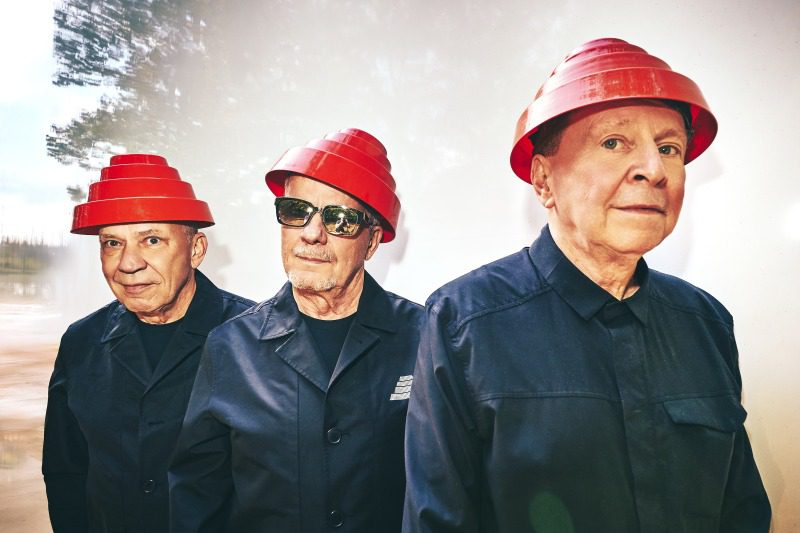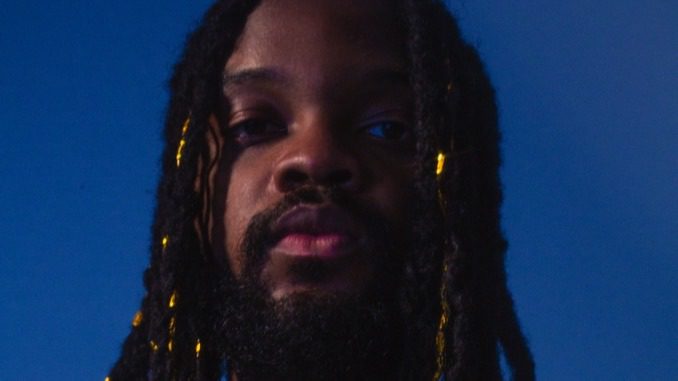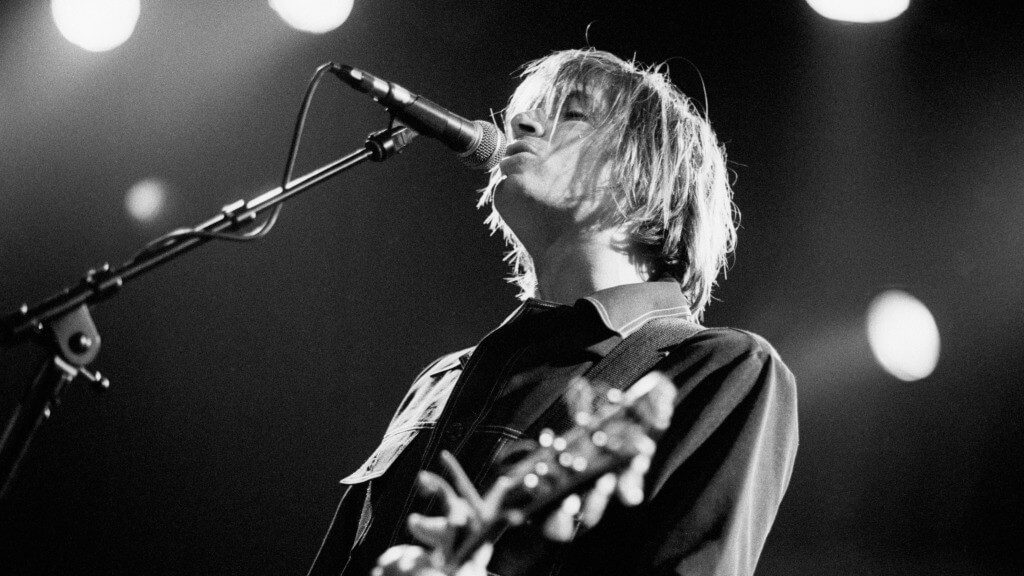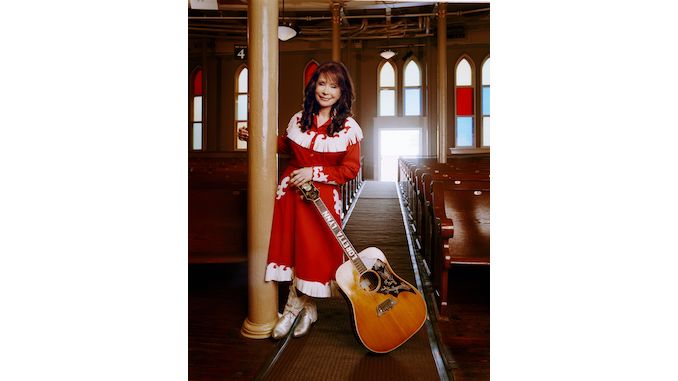The Shaky Knees Festival moved to its new home in Piedmont Park in Atlanta for its 12th year. The new location welcomed well known groups like 4 Non Blondes and Devo and smaller acts like the Stews who experienced some of their biggest crowds yet on the Peachtree Stage. We sat down with some of the artists to find out what helps them with self care when life gets tough, what they are most proud of in 2025, and what special tradition or ritual they perform when they know they are about to go out on stage.
Gerald Casale (of Devo): I can’t tell you.
Mark Mothersbaugh (of Devo): I get depressed, like, for five minutes before we go on. Then when we go on, it all goes away.
Photo of Devo by Donny Evans
Linda Perry (of 4 Non Blondes): Nah. I mean, I just love to sing. I love performing. I don’t have to psych myself out for it. It just is with me twenty-four seven. You know, I wake up a rock star, you know, I go to sleep one, so I don’t need to prep for that.
Michigander: Lip trills, my guitar player is here next to me, Jake, and he’s laughing at me. But yes, lip trills and pulling my pants up tight. I usually check my phone before. I always take my phone on stage. I don’t know why. I think, just in case something bad happens, I need my phone. So, if my mom calls or something.
Eli Hewson (of Inhaler): I’m usually just scrambling for the bathroom or hair gel or something like that. It’s not as romantic as… It’s usually quite a mess, actually. But it all comes together.
Ryan McMahon (of Inhaler): I go through periods of not being nervous at all before shows, and then periods of feeling immense dread, and then, when we get into the first three songs, that tends to go away. It doesn’t stop me from making a few mistakes here and there, though, but whatever.
Josh Jenkinson (of Inhaler): I used to get stressed out and try and do stuff to get in the zone, but I just realised if I just chill out and relax, it’s the best way of getting on. So I do nothing, really, is the answer.
Robert Keating (of Inhaler): Mine’s very similar… Mine’s very similar to Josh in the sense that… Different strokes for different folks, but for me, actually sitting in silence and just being in my head for a second and just chilling, like Josh said, seems to actually give me more energy for when I go out on stage, because I’m focused. Whereas sometimes when I’m listening to music or if I’m drinking, then all of a sudden you wake up and you’re thirty songs in. It can be like a wave, or something.
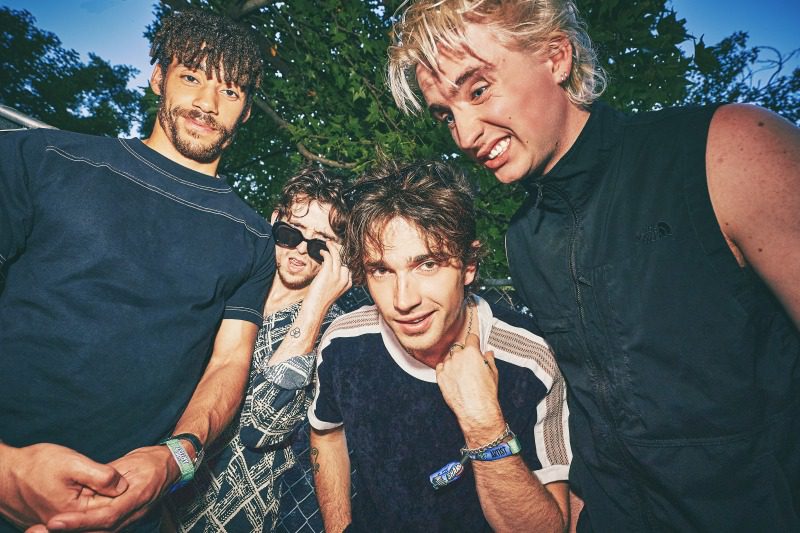
Photo of Inhaler by Donny Evans
Noah Learmonth (of Radio Free Alice): I read out a section of the Book of Mormon twice.
Michael Phillips (of Radio Free Alice): I listen to him do that and weep.
Jules Paradiso (of Radio Free Alice): I touch myself in the corner.
Lochie Dowd (of Radio Free Alice): I sort of paint the whole thing. I set up an easel and I just kinda capture the moment.
Michael Phillips (of Radio Free Alice): That was all irony obviously.
Parker Forbes (of The Criticals): Yeah, we’ve had a little pre-show ritual for a while. We kind of do a little vocal warm-up, sing through some of the songs, and just get our voices ready, and then we’ll just kind of chit-chat for a second and go over anything we need to go over if we’re changing the set list up, which we most often do. And then we just kind of do a little pow-wow, kumbaya with each other for thirty seconds and get each other hyped up and slap each other on the chest and get out there.
Cole Shugart (of The Criticals): This is something we’ve been doing recently. Our baritone and keys player, his name is Henry, used to be a semi-pro wrestler, which is really an interesting combo to end up in a rock band. It’s kind of the same thing, if you think about it. But he used to do this thing before he would wrestle, and he calls it the chops, which is, I mean, we don’t have to go into it, but basically you start and you go boom as hard as you can to one guy, and then the next guy does it to you, and we all go around in a circle to wake ourselves up.
James Guile (of Teen Mortgage): I do so many warm-ups. I do a 10-minute vocal warm-up, and play to a metronome, and go to the ends of the earth to make sure we’re playing on the beat, man, and doing it good.
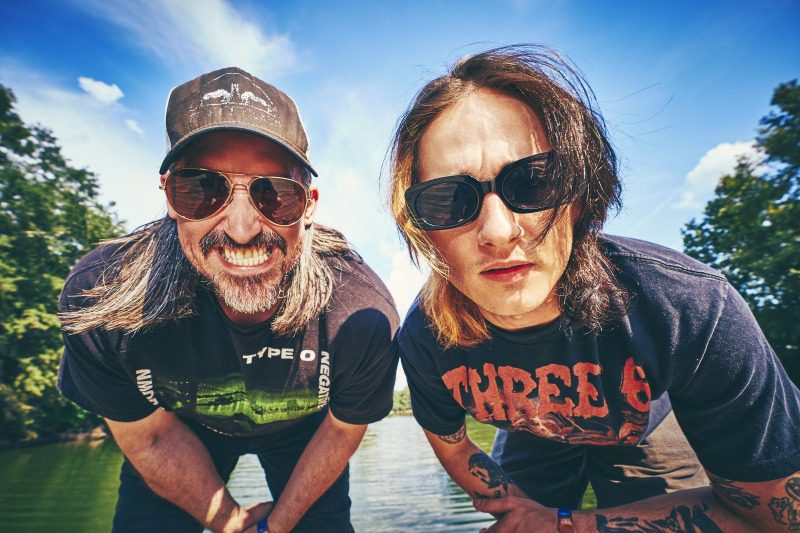
Photo of Teen Mortgage by Donny Evans
When you’re going through hard times, what helps you survive?
Tony Aparo (of Improvement Movement): I have struggled with clinical depression and suicidal ideation for my whole life, and it’s very important to me to express how I’m feeling to everybody around me that cares about me and supports me and to learn that even in my darkest, I’m supported. That has been something that is the hardest thing to remember, but I know that it is true. So I try to go back to that, and being in this band is one of the structural entities in my life that has helped me exercise and practice that expression of the reality of how I feel. And so if anybody else is feeling that way, just know someone that also feels that way is struggling to express themselves, and you’ve got it. We can do this.
Gerald Casale (of Devo): Remember why you’re creative in the first place. Because you believed in yourself and you had a vision of something that you wanted to share with people. And there’s that festival Cruel World, and that’s aptly named. It is a very cruel world, and it’s getting more cruel by the minute. And you can’t let them win. You can’t let people make you give up. You can’t cave in. You have to remember why you’re doing what you’re doing.
Michigander: I literally was just having a conversation with someone and saying that things kind of feel irreversible and horrible and dark. And even the things that I feel like I normally do to kind of get me out of that don’t really work like they used to. Like a pint of Ben and Jerry’s used to be my thing. But now even that is kind of like a, I don’t know. I think the best thing is to just be around people that you care about and be around people that you love. And I think, like, my favorite thing, where I just completely forget about all that stuff, at least for most of it, is playing music with my buddies and being on stage and trying to create a little bit of escapism, I guess. Also: weed.
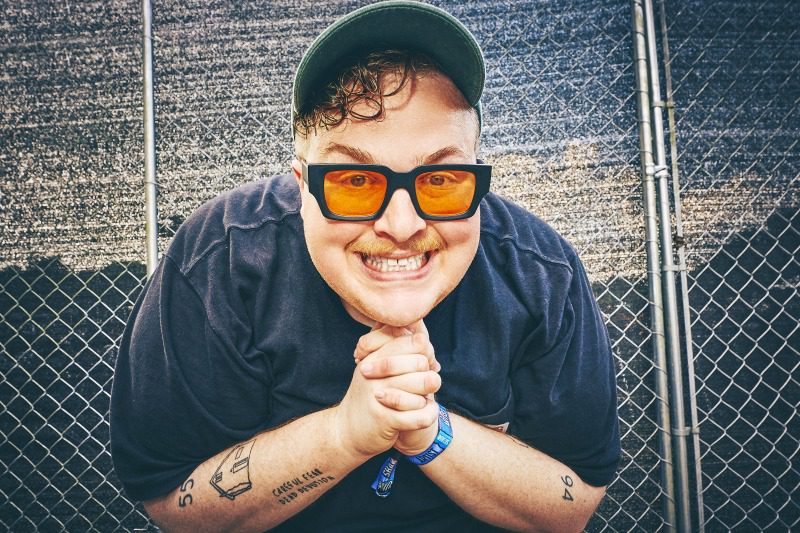
Photo of Michigander by Donny Evans
Joey Valance: I think the biggest thing that you can do is find some outlet that’s positive for you to talk about it. Whether it’s talking with someone else, use music as an outlet. Personally, that’s what I do. Or just be comfortable being in that moment and feeling it. Like it’s okay to feel. Don’t try and push it down. Just be open about it and recognize that that is an important part of life. So yeah, that’s my advice.
Brae: I just think it’s important to have a support system in your life, whether it’s multiple people or one person that you feel the most comfortable around and that you love and, you know, they love you back and that you can just openly talk to. Because I know that I’m pretty bad with that sometimes. I don’t like to, I wear my heart on my sleeve, but when things really bother me, I tend to just kind of shut things off and not talk about it. But that’s never good. It’s better to hear yourself talk things out to somebody else. There’s gotta be at least, find one person in your life where you can be completely yourself with it and talk to them. It’s very, very important to verbally, you know, get things out of your head.
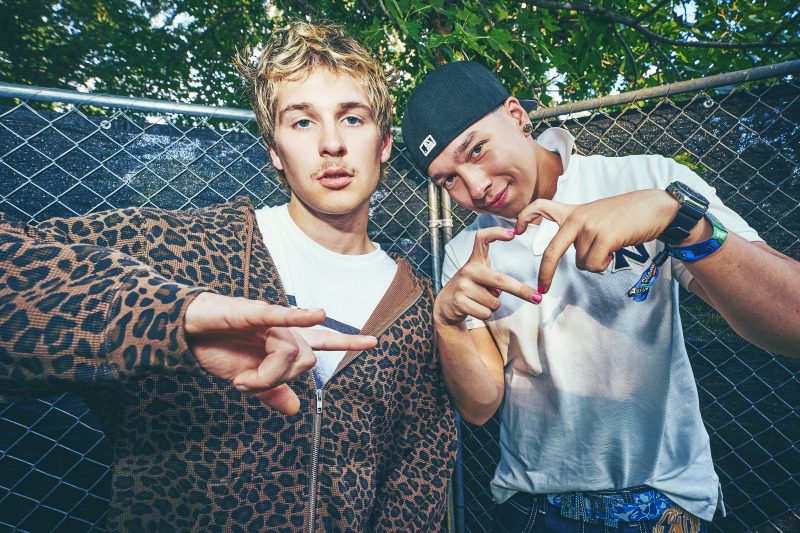
Photo of Joey Valence & Brae by Donny Evans
Bilmuri: These feelings will pass just like they have as they always have. And building up the resilience to just sit in it sometimes and realize there isn’t any escaping this bad feeling other than just going through it. So I think being able to have gone through it before and seeing that the lie is always that you’re always going to feel this way, and that’s just not true. I think being able to have that data on myself and being like, okay, this will pass as well, and you can learn how to weather the storm. And then also there are things that you can do to lessen the intensity of it. And for me it is anything that’s very hedonistic. It doesn’t work to get me out of it. It’s things that are usually kind of difficult at the beginning to help get me out of it. So whether that’s, I have about three or four things that I do that I say reduce it by ten-percent. So it’s like maybe you’re at an eighty and you can get it down to a forty, which is manageable.
To start the day off, I read the Bible and pray. And that helps me because, sometimes, I just don’t feel like I have any control in life and this is a way to help with that. And then I have to work out if I don’t work out, I’ve had days where I’ve been incredibly depressed and then a single workout with a friend will help get me out of it for the day. And then I feel like time spent with friends. I mean, it’s all the things that we know we should be doing. But the insidious part of depression is that it takes away all of your energy to do those things. And that’s where you really got to focus your energy on it like no matter what. I feel like I’m going to go and go to the gym because I know that it’s good for me, even though everything in my body is screaming for me to not do it. But that’s just for me.
Blake Dobbs (of The Stews): I would say being in creative and when the darkness comes and you get really in your own head, like Bennett mentioned earlier, you can get in a tunnel vision, whether it’s a project you’re working on alone or with a group or you’re on tour or you’re a part of a crew, it doesn’t matter, but there’s something about understanding why you’re doing what you’re doing. And once you come to terms with that and feeling totally okay and accepting it for what it is, then you can find yourself in the lowest of lows and be able to accept that because it’s just a part of the process. And at the end of the day, we’re also lucky to be breathing oxygen and living life together and experiencing weekends like this, 60,000 people together screaming and clapping and sweating and laughing. So just know that there are peaks and valleys, but that’s all a part of being a creative.
Bennett Baugus (of The Stews): I think what’s been really helpful for me is realizing that you’re not alone even in that second, third week on tour where everyone’s kind of in their own head and doesn’t want to talk to each other because I mean, you got to be a special type of person to want to be social after spending three, four weeks with the same group of guys. And we’re all young guys, so we can butt heads and get pretty whatever at times. But I think realizing you’re not alone and sometimes it’s just that really simple conversation or something or that call to your parents or anyone that can kind of ground you. And we’re out on the west coast on our last tour and I was getting pretty down. I just hadn’t seen anyone in a really long time. So we scheduled out time for two of us to kind of fly back home. And that was huge for me because you’re out there for so long, you don’t think about those people and you think like, oh, well, if they’re not reaching out to me, then they don’t want to talk or anything. But so often you just got to be the person to push that domino.
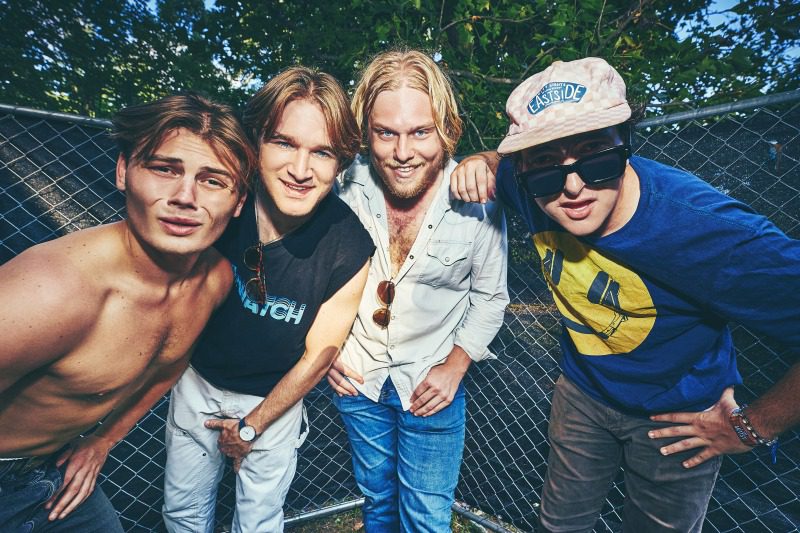
Photo of The Stews by Donny Evans
What are you most proud of in 2025?
Linda Perry (of 4 Non Blondes): I guess I, if anything, I’m just proud of how I just keep fucking pushing back. My drive, my motivation, I just won’t give up. I won’t be pushed down. I’ll just keep going for it. So I guess my stamina is pretty awesome.
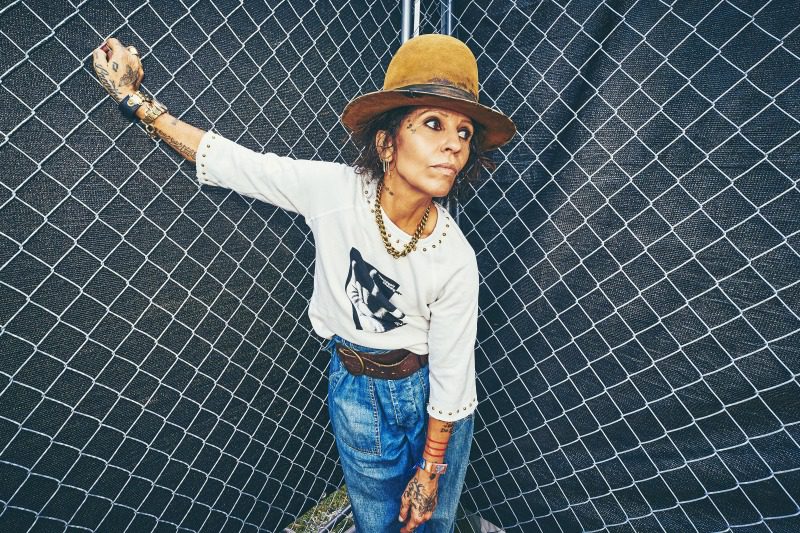
Photo of Linda Perry by Donny Evans
Adam Turla (of Murder by Death): For me, I think it’s, I mean, we’re on a farewell tour right now, and it’s been twenty-five years in this band. 2,000 shows with this band. And I’ve done a lot of reflecting this year because it’s been a long and very, it’s a varied ride for us because we never had a moment. It just kept getting a little bit better for twenty-five years. And I’m really proud that we’re leaving on a high note. I’m happy that we get to, I mean, this tour has been amazing. The venues are full every night and people are just really expressing a lot of love. It’s everything you could want as a musician. It’s validating. It felt like people thought that the work we did mattered. And I’ve gotten thousands of messages and letters and stuff from people who care. So, I’m proud that it mattered to people. And for me, I got to do a thing that I never dreamed would be possible when I was a teenager picking up a guitar. It was just a great ride.
Zach Pyles (of Improvement Movement): I’m proud of us all sleeping pretty much in the same bed together every night, like the grandparents in Willy Wonka. And so far not physically hurting any of each other in a fight.
Laurie Vincent (of Soft Play): Issac. I’m proud of Isaac in 2025.
Isaac Holman (of Soft Play): I’m proud of Laurie.
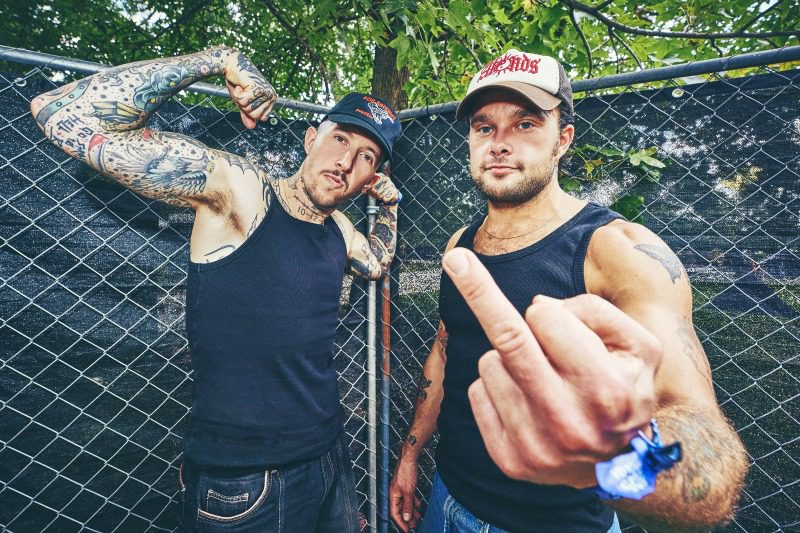
Photo of Soft Play by Donny Evans
Joey Valance: I’m Joey Valance, and I’m proud of Brae.
Brae: Oh my God, and I’m, oh, I’m so sorry. And I’m Brae, and I’m proud of Joey.
Joey Valance: That’s true.
Brae: It is true. I’m proud of each other. A Joey Valance and Brae answer is, we’re proud of each other, and we’re also proud of our new album that just came out, “Hyper Youth”. We’re very, very proud of the work we put out.
Laila Crowe (of Girl Tones): I would say that I am really proud of ripping off the bandaid and getting into the tour life and starting out in the UK and Europe. And I’m just really proud of how many different countries we’ve been able to play this year. It’s just been a huge honor.

